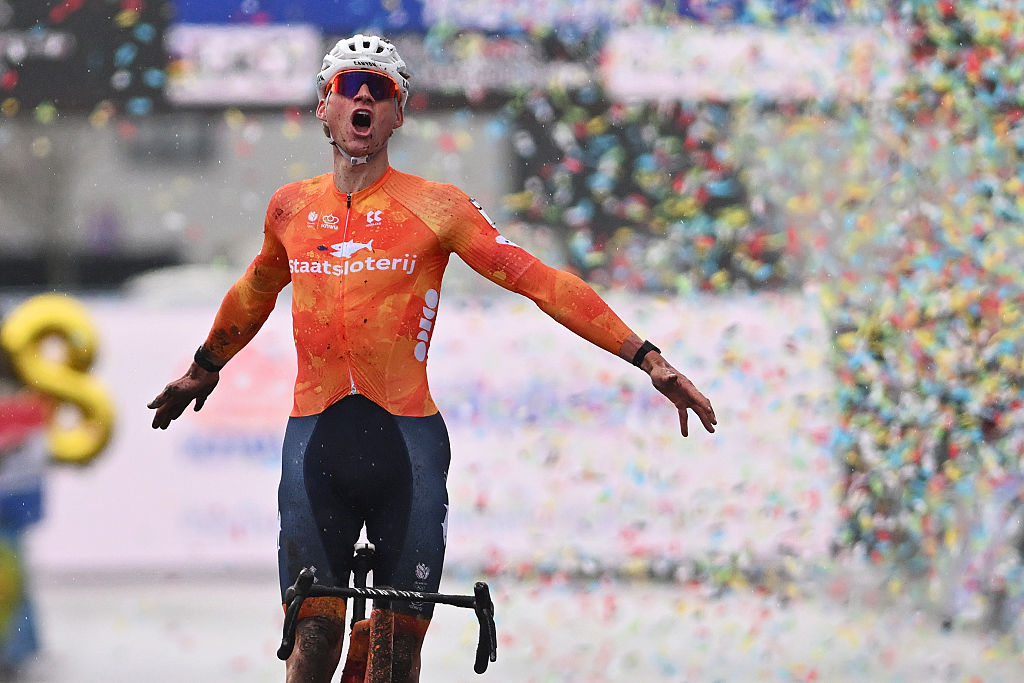Career profile: Jan Ullrich
German prodigy turned outcast

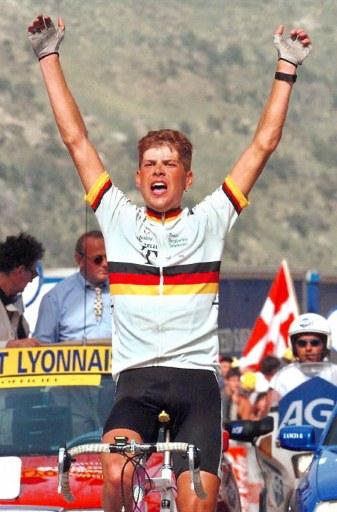
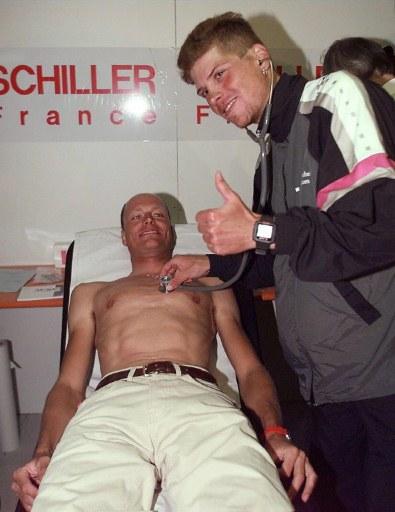
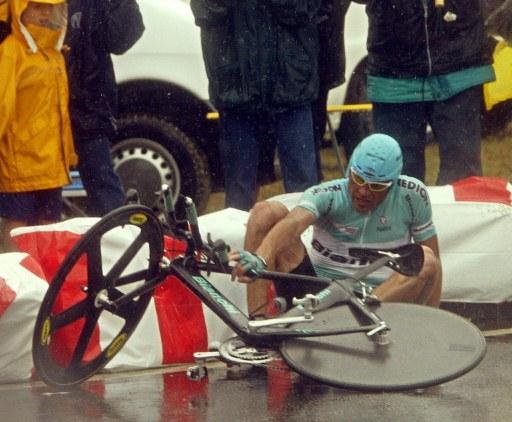
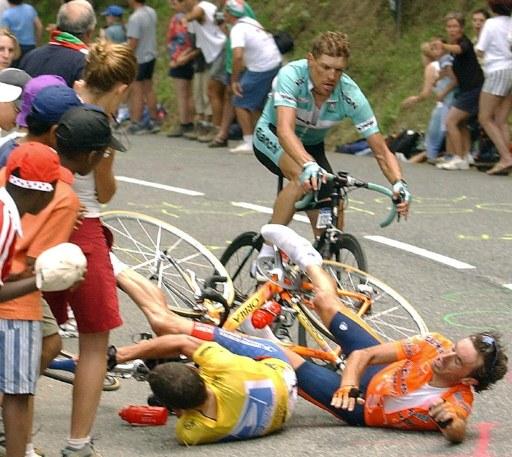
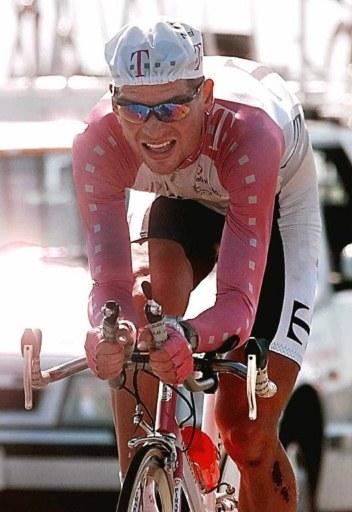
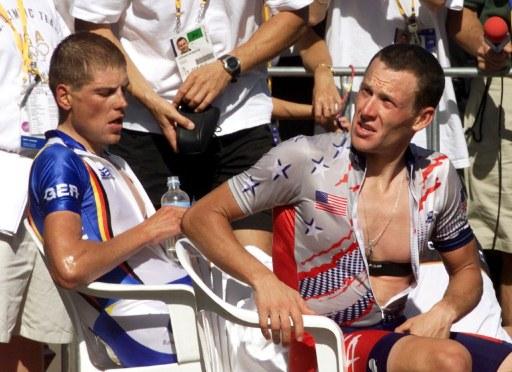
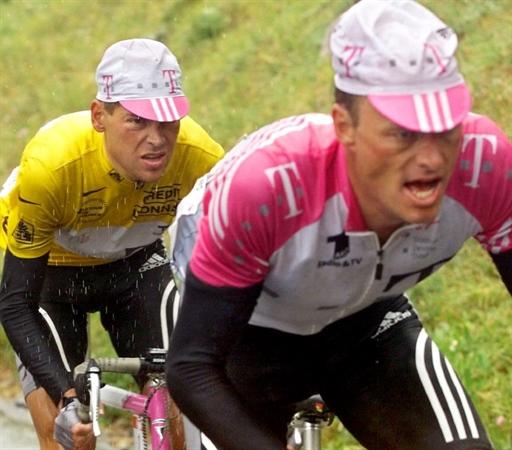
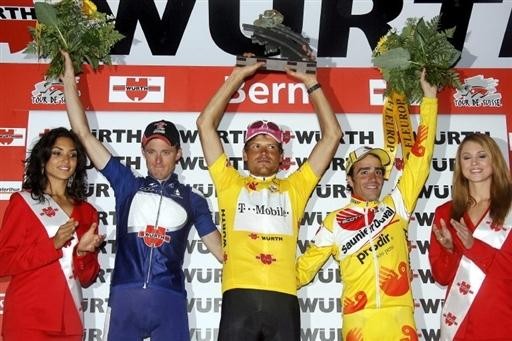
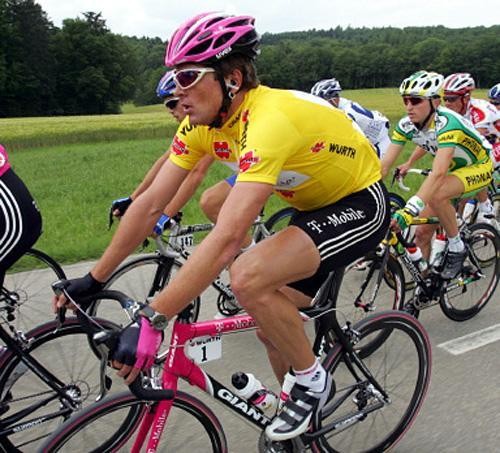
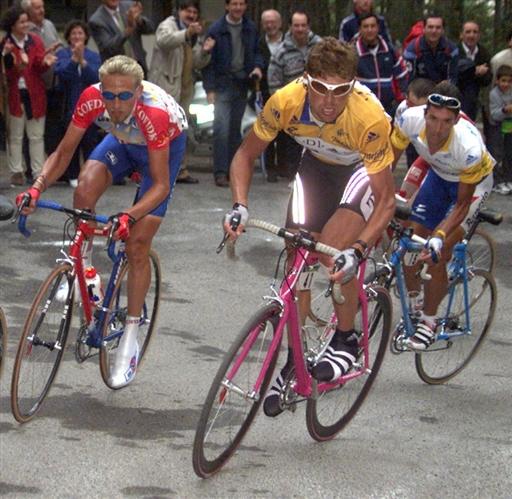
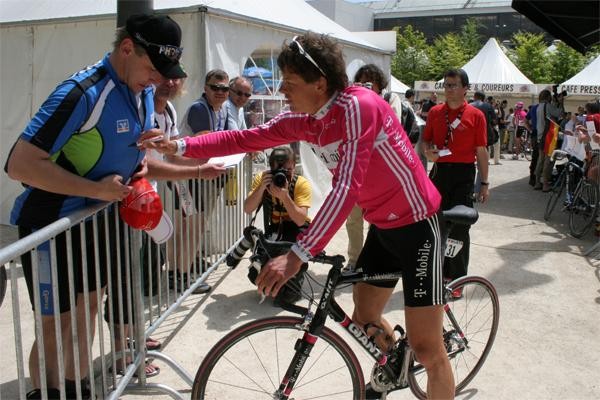
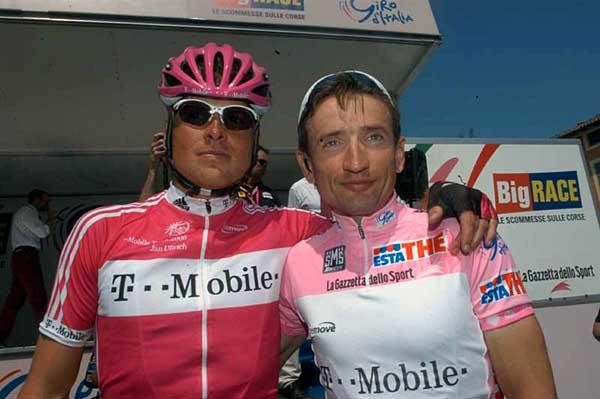
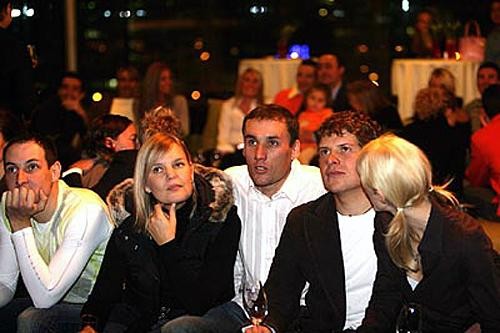
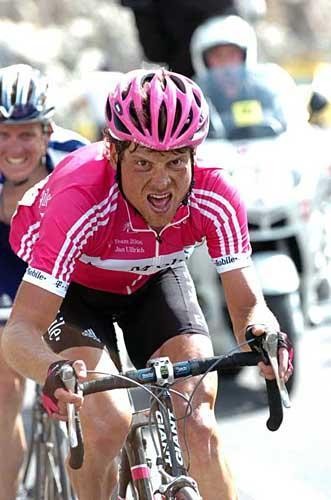
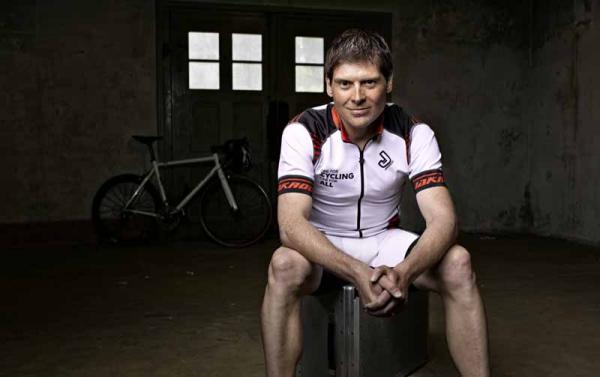
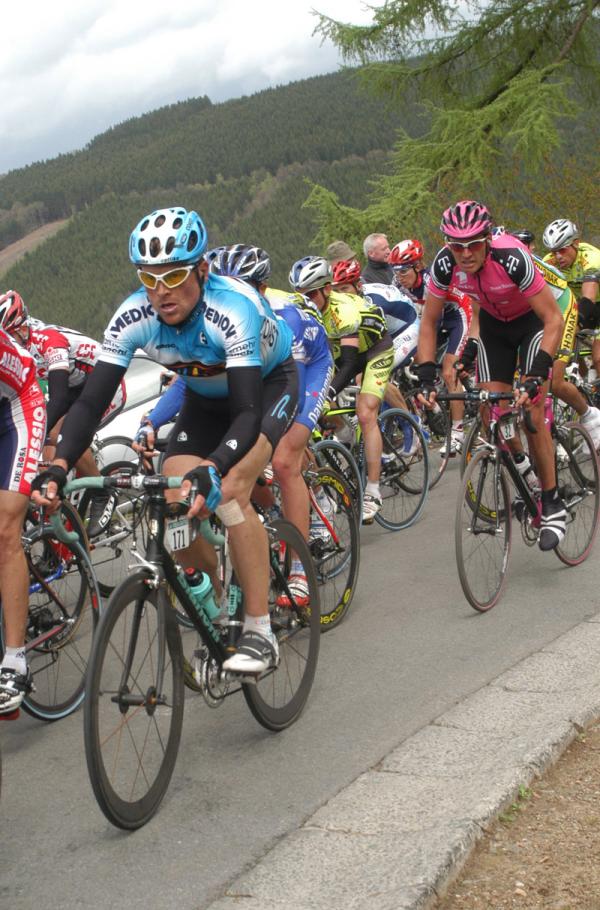

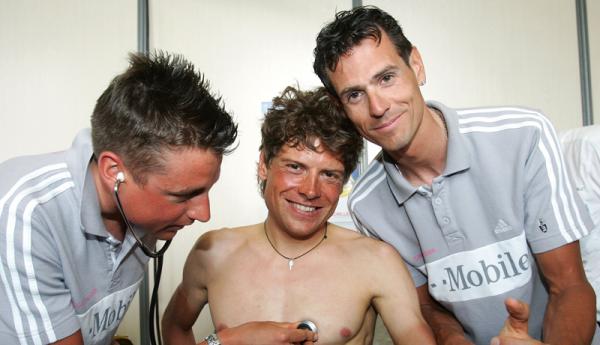
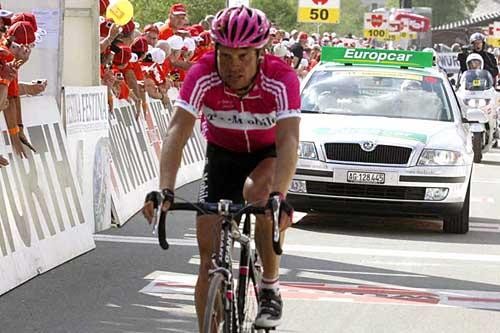
In light of today's Court of Arbitration for Sport decision to disqualify the results of Jan Ullrich from 2005 onward, Cyclingnews looks back at the big German's career and what led up to his downfall.
Jan Ullrich – a man of many parts. Without doubt he was remarkably talented and one of the best cyclists of his generation and despite becoming Germany's first ever winner of the Tour de France, he polarised public opinion. His fans wanted more but the man himself seemed conflicted by physical and mental constraints and you could be left asking 'How much does Ullrich want it?'
A product of the communist model of sporting achievement, Ullrich was cycling's original wunderkind from Rostock. Ullrich won the World Amateur Road Championship in 1993 in Oslo, just as Lance Armstrong took out the professional title, and from then on the pair was destined for a collision course.
Under the continued guidance of Peter Becker, the man who shaped his burgeoning career at the East German sports school, Ullrich signed for Team Telekom in 1994 as a trainee, following in the footsteps of compatriot Erik Zabel. A year later, he turned professional and won the German time trial championship.
As Olympic cycling entered the professional era in 1996 at the Games in Atlanta, Ullrich sided with the Tour de France and it was there that his stocks rose. He may have been considered the stronger rider, but Ullrich played the team game and was essential to Bjarne Riis' eventual overall victory that year.
Individual glory came in the shape of his first stage victory at the grande boucle, the 63.5 km individual time trial between Bourdeaux and Saint Emilion on the Tour's penultimate day, securing his hold on the podium's second step on the Champs Elysees. Ullrich became the first German to make the podium since 1932, when Kurt Stoepl finished second.
Asked if he could have improved his position had it not been for Riis, Ullrich was dismissive but it was Miguel Indurain who seemed assured of the German's future standing.
The latest race content, interviews, features, reviews and expert buying guides, direct to your inbox!
"It's quite remarkable when you think that he has been helping Riis all the time," said the Spaniard, who finished second behind Ullrich for the stage. "He's still very young and he certainly looks like he could win a Tour, if not several."
While his Telekom teammates, including Riis, would later admit to using EPO during the 1996 Tour, Ullrich is yet to comment regarding allegations that he too doped during that period.
1997 - Role reversal and the ascent of Ullrich
The roles at Team Telekom were reversed the following year. Anointed as pre-Tour favourite thanks to a stage win at the Tour de Suisse and victory at the German National Road Championship, it was a title that Ullrich was somewhat reluctant accept. The situation came to a head on Stage 10, with Ullrich already having a stranglehold on the young rider's classification from the Tour's opening day.
With Cédric Vasseur in yellow, a distinct changing of the guard took place with Riis insisting Ullrich make his move on the final climb to Andorra Arcalis and the German's reputation as an all-rounder was cemented. Ullrich charged ahead, looking back perhaps plagued by doubt that he was doing the right thing by the older, more experienced Riis in leaving him behind. Ullrich finished with a gap of over a minute to Marco Pantani and Richard Virenque and yellow was his.
In the final week of that 1997 Tour, Virenque would be the catalyst for a defining moment of Ullrich's rollercoaster career. With the Frenchman not content to allow Ullrich to hold onto the yellow jersey without a fight, the German's teammate Udo Bölts motivated the then-23-year-old by yelling at him "Quäl Dich, du Sau" – suffer you pig.
This yellow was not just about Ullrich, it was indeed a team effort and Ullrich was reminded of the heady ideals instilled in him in under the East German system. If Bölts' harsh encouragement was the difference between Ullrich cracking under the pressure and going on to general classification victory, we'll never know but the margin created over Virenque after three weeks in the saddle – 0:09:09 - was the largest since Laurent Fignon in 1984.
Ullrich, at age 23, had made history as the first German to win the Tour and so began the rest of his career which was indelibly marked by acute peaks and troughs.
Named German sports person of the year following his historic victory, Ullrich felt the need to escape from the spotlight which now shone brightly upon him. The person that returned was overweight and it was easy to rightfully question his motivation for the rapid trajectory his career appeared to be on.
In 1998, Ullrich finished second overall to Pantani, despite winning two stages along the way which matched his efforts the previous year. It was almost unthinkable for a German public, hungry for more from their young star.
Ullrich the bridesmaid in Armstrong era
Unable to compete at the 1999 Tour due to a knee injury and lacking drive, Ullrich's absence made way for the first of Lance Armstrong's seven victories. He later admitted in his biography that he "had absolutely no more interest in cycling." Instead, Ullrich turned his attention towards the Vuelta a Espana which he won, and continued his form by claiming the world time trial championship in Verona.
A new pattern for the rest of his career had been set. In his late-season run, the pressure was off, and he was free in the sense that he could go about what he did best – competing in the true sense of the word. It would be seen again at the Sydney Olympic Games in 2000 where he won gold in the road race, and to a point in the 2003 Tour de France where he finished runner-up to Armstrong where it was considered to be his best chance at the second maillot jaune.
Perhaps it was self-destruction but it was overwhelmingly a tragedy. A crash at the 2001 Tour de France ruined any chance he had at victory over the man who would be written into the history books as his nemesis, Armstrong, and Ullrich fell into depression. Then followed the German's run-ins with the law, dabbling with drugs, alcohol and falling victim to eating disorders and injury.
In June 2002, Ullrich was handed a six-month suspension by the German Cycling Federation for a positive test for amphetamines after an out of competition control. He explained that he had taken the drugs in a bid to improve his mood given he had not been competitive since January while recovering from a knee injury.
Ullrich returned to cycling in January 2003 with Team Coast, a squad which would later be plagued by financial woe and finally rescued by Bianchi in March with an eye to competing at the centenary Tour.
Filled with drama, Ullrich would get the closest of anyone to Armstrong over his long reign and in Paris, just 0:01:01. The enduring question, whether Ullrich's decision to wait for Armstrong on Stage 15 after the American was brought to the ground by a spectator's souvenir cost him the Tour? At the beginning of the day, Ullrich trailed Armstrong by just 15 seconds.
"If I would have won this race by taking advantage of someone's bad luck, then the race was not worth winning," he said before Stage 16 having lost 52 seconds to Armstrong following the decision to wait.
Regardless, it was a defining moment in Ullrich's troubled career.
Back in the fold with Telekom
In 2004 and once again riding for Team Telekom which was now known as T-Mobile, Ullrich failed to reach the podium at the Tour for the first time, finishing in fourth position behind Armstrong, Andreas Kloden and Ivan Basso.
The following year was again another plagued by injury with Ullrich crashing into the back of the team car on the eve of the Tour, kissing the bitumen in the mountain and unable to defeat Armstrong in the two time trials on offer. He would finish third on general classification behind Armstrong, with Basso runner-up.
With Armstrong out of the picture having retired in 2005, it was believed Ullrich could repeat his 1997 performance and return to the top of the podium in the Tour. Injury again put a stop to such thoughts with his troublesome knee and then back pain putting a dint in his pre-Tour preparation. Ullrich did however, return to the winner's circle at the Tour de Suisse but then reached a stumbling block from which his career would never recover.
Just prior to the 2006 Tour, Operacion Puerto erupted, bringing cycling to its knees despite other sports being implicated and then largely overlooked in the scandal. Ullrich was just one of around 50 cyclists named in the Guardia Civil investigation and on the eve of the race, was suspended.
In February the following year, Ullrich announced his retirement and two months after that prosecutors in Germany said that they had matched Ullrich's DNA to blood bags seized from Dr Eufemiano Fuentes.
Speaking to Cyclingnews recently, Ullrich admitted that he wished things had turned out differently.
"What I regret, or what I find too bad, is that in 2006 I could not start the Tour de France as I had an outstanding form. And when my career ended, the way it happened. I would have wished it to end in a different way," said Ullrich.
With his case dragging on longer than most, Ullrich also believes his treatment to have been unjust.
"When it [Operacion Puerto] happened there were several nations involved,” Ullrich told Cyclingnews. “The Spaniards dealt with it more relaxed than in Germany. I was put on the chopping block and suffered a lot.
"I was upset because I was going to end my career anyway. I wanted to stop that year and Basso isn't much younger than me and after his suspension he could ride again but for me it was not something I was considering," he added.
In 2010 Ullrich, suffering burn out syndrome, withdrew from public life.
"Looking back it is quite simple. It was tough mentally. I had a lot of problems. I telephoned a lot with lawyers. There were difficult things to get through, and I simply didn't get any exercise. The balance between head and body wasn't there," said Ullrich.
Ullrich certainly breathed life into the emerging cycling nation that was Germany in the late 90s as the country itself developed its new identity and ideals. His popularity rode the wave of his fortunes on the bike but whether he was ever fully equipped to deal with life on the grand stage given his sheltered beginnings, and what role that in-turn played in his fall from grace, will be an enduring mystery to most but himself.
As a sports journalist and producer since 1997, Jane has covered Olympic and Commonwealth Games, rugby league, motorsport, cricket, surfing, triathlon, rugby union, and golf for print, radio, television and online. However her enduring passion has been cycling.
Jane is a former Australian Editor of Cyclingnews from 2011 to 2013 and continues to freelance within the cycling industry.
